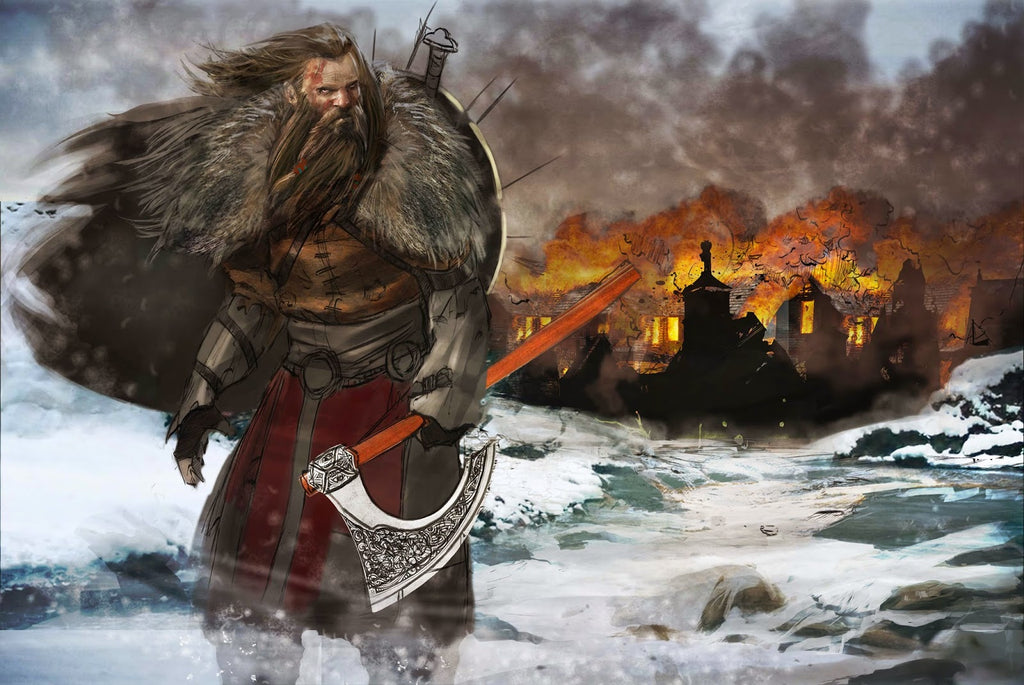Ten Common English Words Originated in the Vikings
The Viking Age never falls into oblivion even if the final glory of the Viking Age came to an end. What the Vikings left for the generation have always been acknowledged and carried on into the new era. You might not know that there is an abundance of the English words that rooted in the Viking age.
Here are ten common English words that we can find it root back to the Viking Age.
Ugly
When the Vikings wanted to depict someone with an unattractive appearance, not to say "terrible", they would say "uggligr" stemming from "ugga" meaning to fear. Most people believe that if a Viking warrior didn't have good skills, he would still be useful with an ugly appearance. The terrible looking in the Vikings could fear the enemies, making that ugly man become a fearsome raider.
Thursday
Thursday is the mid weekday. In the Viking age, it was "Thor's day" which was dedicated to Thor God of Thunder and Lightning in Viking Age. This word dated back to the 12th century around the end of the Viking age. In Old Norse, it was "thōrsdagr".

Some scholars believed that facing the popularity of Christianity, the Vikings found the way to save their religions by honouring their gods on their weekdays.
Husband
Husband is actually the "húsbóndi" in Old Norse. It was a compound word combing the "hús" meaning house and the "bóndi" meaning master of the land. So generally, the "húsbóndi" meant "the master of the house" referring to the power of every Viking family was in the hand of the men. This matter is somewhat different in the modern sense as the good husband is the one that puts his family's good in the foremost priority.
Happy
"What is happiness" is forever a typical question. The answer depends on each personal opinion, in fact. Thereby, happiness is very difficult to measure and accordingly hard to precisely define.
The word "happy" originated in the Viking Age. Ragnar Lothbrok and his crew used to use the word "happ" to mention the joy of fortune and treasure. And later on, it was added the suffix "-y".
Gift
Until the sky falls and we meet the Doomsday, humanity loves exchanging the gifts. No one could explain why people just love exchanging the gifts so much. It might become a part of our DNA. In Old Norse, we learn the word "gipt" meaning good luck. This word laid the foundation for the English word "gift" later on.
Egg
Bumble, bramble, which came first, sir,
Eggs or chickens? Who can tell?
It is forever a confusing riddle as to whether the eggs came first or the chickens.
Though we cannot find the exact answer to the riddle, we are sure to know that the word "egg" originated in the Viking Age. It came from the word "æg".
Knife
It was the people from Scandinavian regions that coined the word "knife". This word dated back to the Viking Age. During the time, the Vikings used the word "knifr".

Window
This English word "window" points to a part of a construction that enables the insiders to look through the construction without stepping outside. A house without a window is a blind house. And the Vikings were among the earliest tribes to realize this fact.
The word "window" originated in the Old Norse compound word "vindauga". It consisted of "vindr" meaning wind and "auga" meaning eye.
Elf
Commonly, the media depiction of the "elf" is the beautiful and shining creatures resembling the physical appearance of humanity. But the word "elf" originated in Old Norse was not that beautiful. It came from the word "Alp" meaning "nightmare". In Norse mythology, elf both helped and caused the destruction to humanity. Elf often wandered around when the night fell on.

Viking elf was not the beautiful creatures playing the harps in the golden hall to entertain themselves and others. The word "elf" originated in the Old Norse language "Alp" meaning "nightmare". According to the Viking sagas, elf often wandered around during the nights.
Cake
The English word "cake" originated in the Old Norse word "Kaka" referring to the little cake in the Viking Age.




